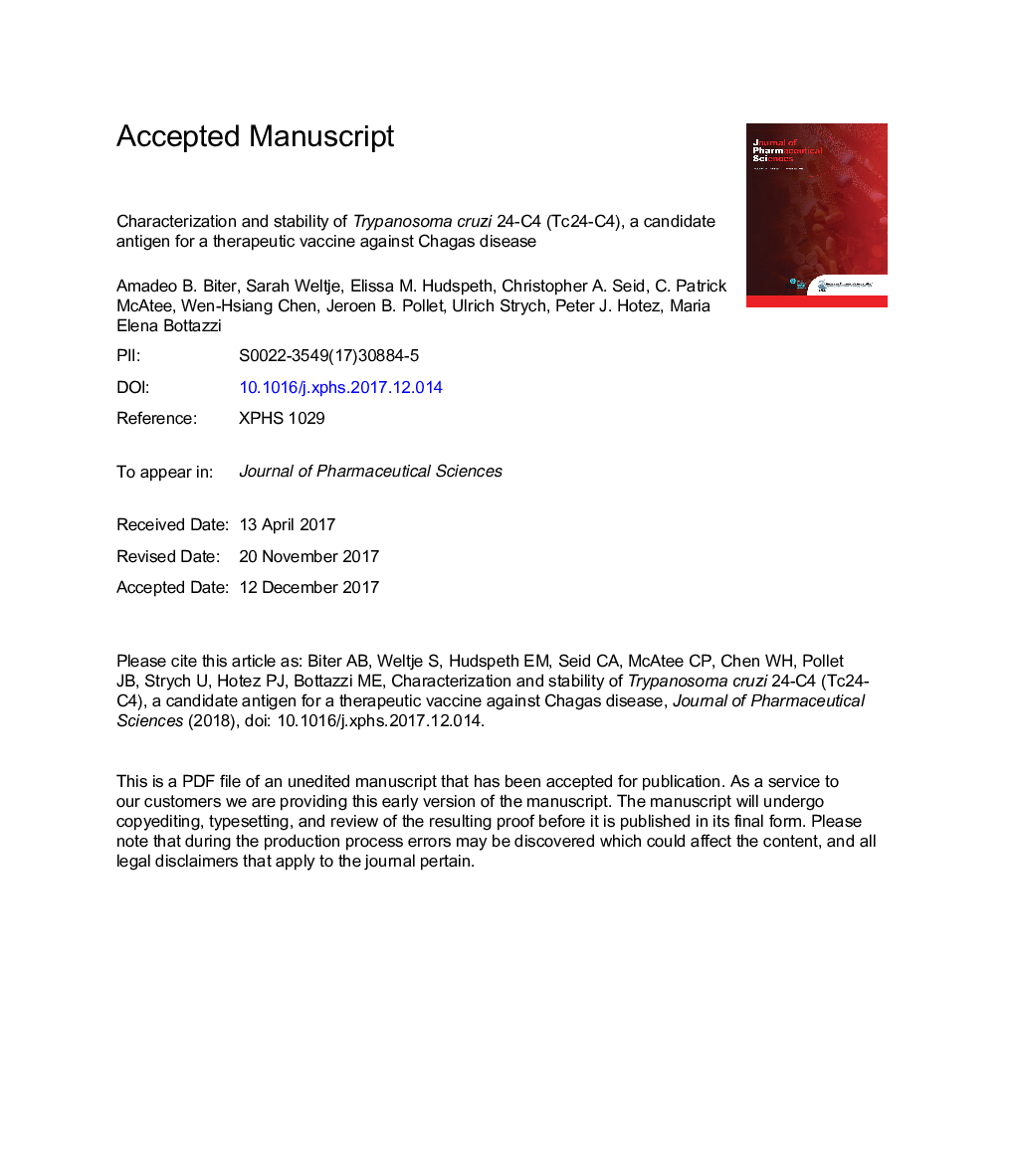| Article ID | Journal | Published Year | Pages | File Type |
|---|---|---|---|---|
| 8513357 | Journal of Pharmaceutical Sciences | 2018 | 31 Pages |
Abstract
Chagas disease due to chronic infection with Trypanosoma cruzi is a neglected cause of heart disease, affecting approximately 6-10 million individuals in Latin America and elsewhere. T. cruzi Tc24, a calcium-binding protein in the flagellar pocket of the parasite, is a candidate antigen for an injectable therapeutic vaccine as an alternative or a complement to chemotherapy. Previously, we reported that a genetically engineered construct from which all cysteine residues had been eliminated (Tc24-C4) yields a recombinant protein with reduced aggregation and improved analytical purity in comparison to the wild-type form, without compromising antigenicity and immunogenicity. We now report that the established process for producing Escherichia coli-expressed Tc24-C4 protein is robust and reproducibly yields protein lots with consistent analytical characteristics, freeze-thaw, accelerated, and long-term stability profiles. The data indicate that, like most proteins, Tc24-C4 should be stable at â80°C, but also at 4°C and room temperature for at least 30 days, and up to 7-15 days at 37°C. Thus, the production process for recombinant Tc24-C4 is suitable for Current Good Manufacturing Practice production and clinical testing, based on process robustness, analytical characteristics, and stability profile.
Related Topics
Health Sciences
Pharmacology, Toxicology and Pharmaceutical Science
Drug Discovery
Authors
Amadeo B. Biter, Sarah Weltje, Elissa M. Hudspeth, Christopher A. Seid, C. Patrick McAtee, Wen-Hsiang Chen, Jeroen B. Pollet, Ulrich Strych, Peter J. Hotez, Maria Elena Bottazzi,
